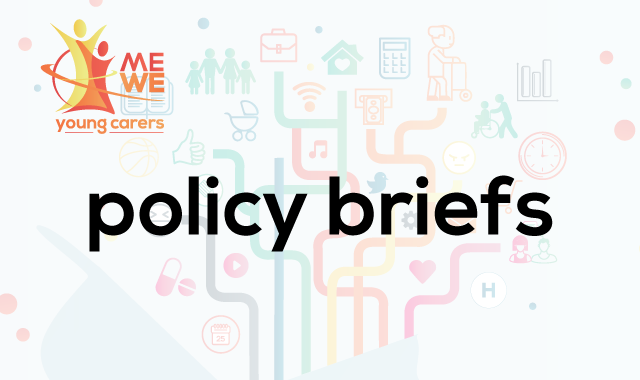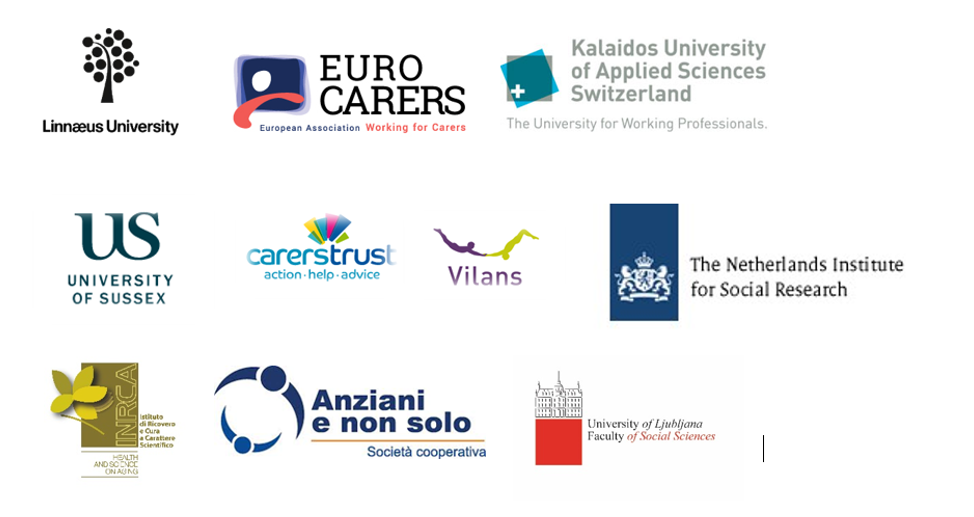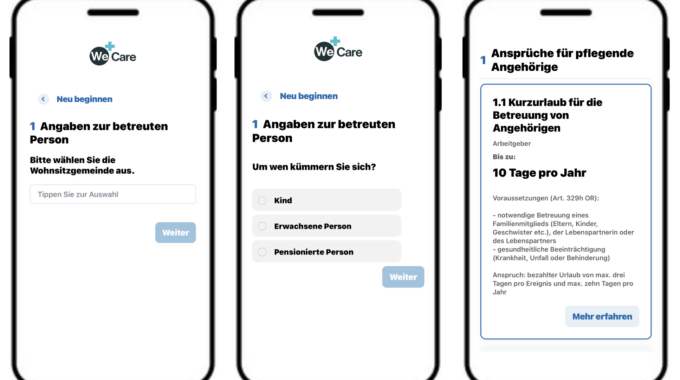
Launch of Policy briefs “Enabling young carers to pursue their goals in life and reach their full potential – converting research findings into policy actions”
PRESS RELEASE for the ME-WE project
Across Europe, a substantial number of children and young people provide care (emotional, personal, practical, financial) to a family member or a friend who is an older person, has a disability, chronic disease, addiction or any other condition related to a long-term care need.
These children and young people – young carers – can gain a strong sense of worth from caring and experience an enhanced self-esteem, empathy and maturity. Yet, caring can also negatively impact on young people’s development, compromising their education, mental health and social inclusion.
Human rights considerations call for the need to address this issue, so that young carers can enjoy the rights to which they are entitled, just like all children. These considerations are strengthened by economic arguments, as poor mental health, early school dropout and low employability levels are increasingly recognized as a cost not only for the young carers themselves but also for our societies.
- How can policies and practices enable young carers to pursue their goals in life and achieve their full potential?
- Do the “best interests” of a child consist of protecting him/her from caring at all (often seen as problematic) or in protecting him/her from inappropriate caring (e. caring intensity and activities comparable to those of an adult and which have a negative impact on the child’s health, wellbeing and/or education, and which can be considered unsuitable in light of the child’s circumstances)?
- Do we need legislation and policies specifically targeting young carers, or can broader frameworks (on children, youth and carers in general) be equally effective?
The answer to these and other dilemmas is provided in a set of policy briefs developed in the framework of an innovative European research and innovation project, funded through the EU’s Horizon 2020 Programme and called ME-WE – Psychosocial Support for Promoting Mental Health and Well-being among Adolescent Young Carers in Europe.
Building on the first research findings (on the profiles and needs of adolescent young carers, on legislation and policies protecting and supporting young carers and successful strategies to improve young carers’ mental health and well-being), the briefs ponder on their policy implications and suggest possible courses of action.
“No ‘one size fits all’ solution exists” says Elizabeth Hanson – Professor of Health Sciences at Linnaeus University in Sweden and Principal Investigator of the ME-WE project. Indeed, “the countries explored in this project – Sweden, UK, Switzerland, the Netherlands, Italy and Slovenia- are at different stages of awareness and action as regards young carers’ needs and preferences. They are equipped with very different welfare systems, and have highly divergent philosophical approaches to the topic of care and caring, starting with ‘Whose responsibility is it to care?’. The policy recommendations need to take these differences into account”. Hence, in addition to a brief offering a transnational comparison among all the project countries, the ME-WE consortium has developed country-specific briefs.
“Beyond the specificities of each country context, there are broad policy priorities valid for all countries: young carers need to be identified, supported and actively engaged in – policy and support – decisions that affect them” says Francesca Centola, Eurocarers coordinator of the activities with and for young carers. “These priorities are crucial to achieve the vision of the ME-WE consortium: that young carers are enabled to pursue their goals in life and to achieve their full potential, without being negatively impacted by their caring responsibilities”.
The set of policy briefs is intended to act as a tool to empower policymakers and other stakeholders –professionals from the educational, social, health, care, children, and youth fields – who are willing to address the needs of young carers at European, national, regional or local level as appropriate. Each member of our societies has a role to play to enable young carers to fully enjoy the human rights to which they are entitled.
If you share our vision and you want to know which concrete actions you can undertake to support young carers, please read the ME-We policy briefs.
Click here to access the European policy brief, which provides a comparison among the different project countries.
The national policy briefs are available below:
For more information about the ME-WE Project, visit the project website.
Next events on young carers:
- 25 September 2019, European Parliament Informal Carers Interest Group meeting, Brussels
- 16-17 November 2020, International Young Carers Conference, Brussels
For more information on Eurocarers activities with and for young carers, please contact Francesca Centola at fc@eurocarers.org.












